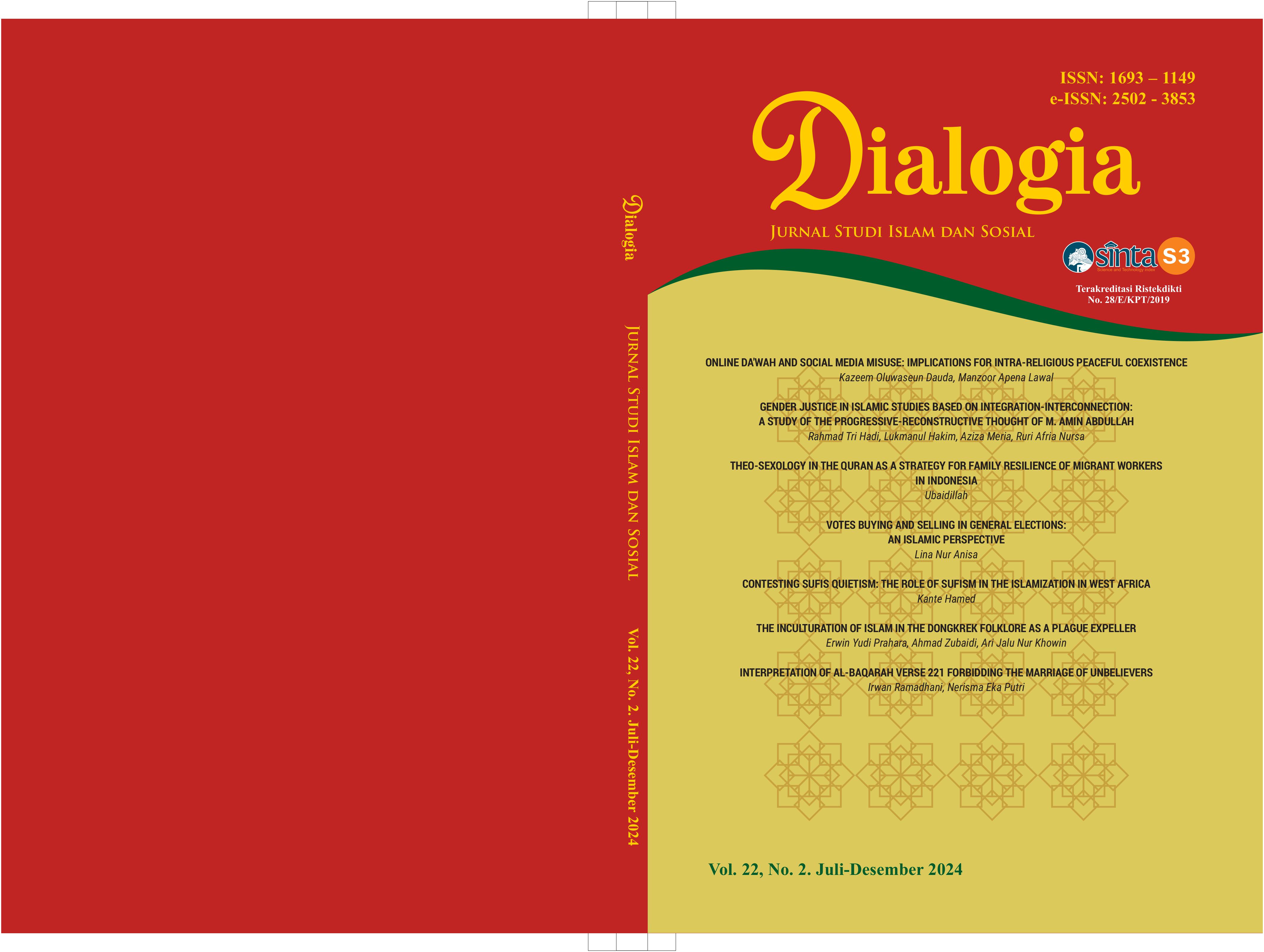Votes Buying and Selling in General Elections: An Islamic Perspective
DOI:
https://doi.org/10.21154/dialogia.v22i2.8946Abstract
This article aims to discuss the practice of vote buying and selling in general elections from an Islamic perspective. This research applies a qualitative approach with library research as its method. The data collection technique employed is documentation, accompanied by data analysis techniques such as content analysis, induction, and deduction. The conclusions from the discussion in this article are as follows. First, votes buying and selling in general elections is a practice where voters’ votes are treated as commodities or merchandise in exchange for money, goods, or services. Second, from an Islamic viewpoint, votes buying and selling in general elections is a reprehensible practice and is explicitly prohibited because it violates the fundamental principles of justice, honesty, and trust that are advocated by the religion. Third, the practice of votes buying and selling in elections damages the social order by undermining trust in the integrity of the political system, reducing participation in elections, weakening social cohesion, and destabilizing the political stability of Islamic communities. Fourth, the Islamic solution to overcome the votes buying and selling in general elections includes revitalizing Islamic political education, increasing public awareness through campaigns about the dangers of vote buying and selling in elections, educating the public about Islamic values that support honesty and integrity in the political process, providing sharia sanctions for individuals involved in buying and selling votes in elections, as well as enhancing the role of ulama to promote political ethics under Islamic teachings.
Downloads
Downloads
Published
Versions
- 01-01-2025 (2)
- 30-12-2024 (1)
Issue
Section
License
Copyright (c) 2024 Lina Nur Anisa

This work is licensed under a Creative Commons Attribution-NonCommercial-ShareAlike 4.0 International License.
Dialogia : Jurnal Studi Islam dan Sosial allow the author(s) to hold the copyright without restrictions and allow the author(s) to retain publishing rights without restrictions, also the owner of the commercial rights to the article is the author.










